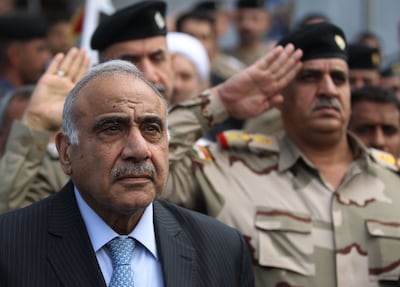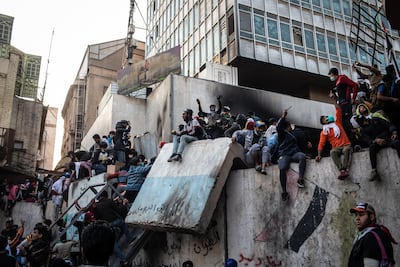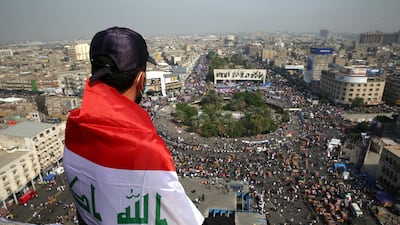An Iraqi who claims a government minister threatened to kill him after he took part in protests has won the latest round of his legal battle to claim asylum in the UK.
The 55-year-old, who can’t be named for legal reasons, participated in the 2019 protests in Baghdad’s Tahrir Square and arrived in Britain via Spain in December that year, court documents show.
Iraqis took to the streets across the country to protest against the political elite who have been in power since the 2003 US-led invasion that toppled Saddam Hussein.
Their demands included more jobs, better services, an end to endemic corruption and an overhaul of the political system, including a change to the electoral system that favoured established parties, who were widely blamed for failed governance.
But the protests were met with a heavy-handed crackdown by security forces.
The Iraqi man is seeking asylum in the UK on the basis that he would be at risk due to his participation and that “a government minister threatened to kill him”. The identity of the minister is not revealed in the documents.
His bid for refugee status was, however, rejected by a judge who ruled that in his view evidence did not show Iraqi security forces had arrested those who took part after they returned home.
The man was allowed to appeal the decision on the basis that the judge “failed to engage with the relevant evidence in making that finding” and gave “inadequate reasons”.
In granting him a fresh hearing, judge Zane Malik said evidence from the US State Department’s Iraq 2020 Human Rights Report, as well as newspaper articles had in fact been presented at the earlier hearing.
The US report, among other things, suggested that more than 500 civilians were killed and 20,000 or more injured during the protests, with of those who were killed were hit in the head and heart.
“The immediate difficulty with the judge's analysis that it simply fails to engage with this evidence,” said Mr Malik.
“There is no explanation in the Judge's decision as to how his findings are justified on this evidence.”
The original judge had relied on a reported statement by Iraq’s then Prime Minister Adel Abdul Mahdi who said that he was ready to meet the protesters in order to hear their demands.
The article said that security forces had been given orders not to use live ammunition except in strict cases of self-defence.

But Mr Malik said “the article also included substantial amount of information as to the widespread killings of demonstrators and specific targeting by the security forces”.
“There is nothing in the Judge's decision that shows that he considered that evidence pointing to a different direction,” he said.
“The judge was obliged to address it in a reasoned manner. I emphasise that the Judge was not required to simply accept what was said about the killings and targeting of demonstrators in the article or indeed in the US State Department report.
“The judge, however, was required to engage with these items and to give proper reasons for reaching his view.”
Mr Malik said that a decision to grant asylum calls for “anxious scrutiny” of the evidence.
But he said the original decision by the judge was “materially wrong in law” because it failed to take into account evidence which supports the Iraqi man’s claim and that affected the outcome.
Mr Malik overturned the previous decision and granted the man a fresh hearing.

Earlier this year, an Iraqi police officer was sentenced to life in prison for his involvement in the killing of dozens of protesters in southern Iraq in 2019.
In addition to the 600 protesters killed in the violence, tens of thousands were wounded, many with live ammunition.
The violence resulted in the burning of political party offices and clashes between tribal groups, protesters, police and militias – leading to some deaths among security forces.
Dozens of activists reported intimidation and there were many kidnappings and assassinations.
Activists accused Iran-backed militias of being behind the assassinations to try to subdue the protests. The government and militias blamed “third parties”, without specifying those involved.
Adil Abdul Mahdi eventually stood down after the turmoil and was replaced by Mustafa Al Kadhimi.


